The cost of China’s information vacuum
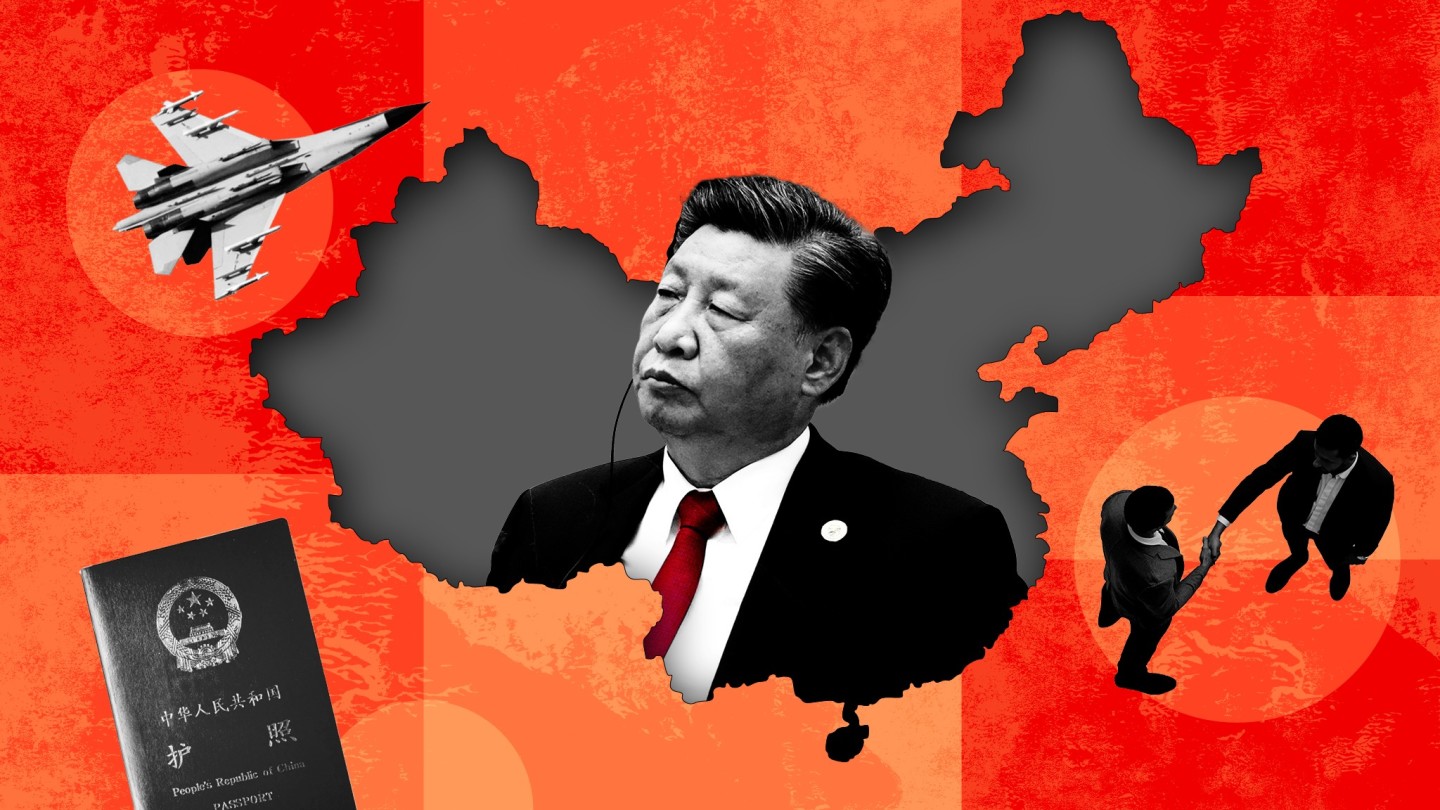
Simply sign up to the US-China relations myFT Digest -- delivered directly to your inbox.
In the summer of 1963, Jan Berris was sitting in an office half an hour outside Washington DC and converting a series of codes into English text. A student of Chinese at the University of Michigan, she was on a summer internship at the National Security Agency.
In theory, Berris’s task was translating and analysing telegrams from China. But instead of the original Chinese message, all she got to see was a four-digit code for each word.
In 1971, she joined the National Committee on US-China Relations, just as ties between the two countries were beginning to thaw. She spent the next five decades at the non-profit organisation promoting mutual understanding between the US and China — from organising the ping-pong diplomacy that helped break the ice to bringing hundreds of delegations of fledgling US scholars and policy analysts to China.
As China has grown into a superpower, the knowledge and expertise about the country accumulated by a generation of scholars, diplomats and businesspeople has become more important than ever.
Yet many of those sources are now running dry. Under Chinese leader Xi Jinping, censorship has been tightened, power has become more concentrated at the top and access for foreigners has been sharply restricted.
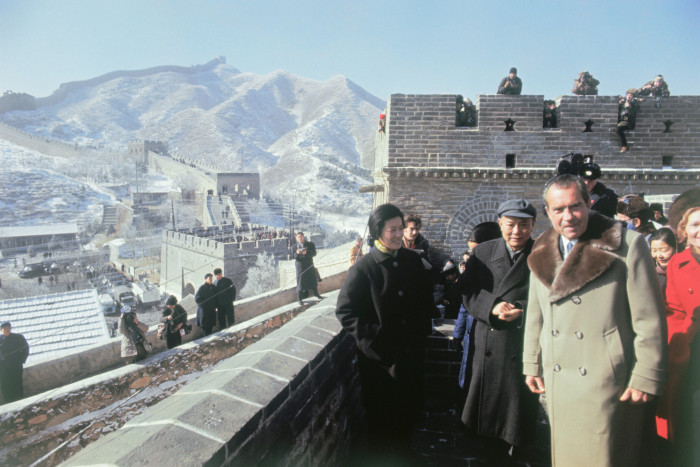
Deprived of many of the insights and personal contacts that the expert community had developed, it is becoming even harder for governments to understand what is really going on in China, which is adding to the greater sense of unpredictability about Beijing’s decision-making.
“Are we going to become as cut off as in those early days again? There is a danger of that,” says Berris. She recalls that during her 1963 NSA internship — a time when there was almost no foreign travel to China — she felt the work was completely removed from Chinese reality. “It is like that again now — the young staff are just handling raw data without a connection to anything real.”
The political mood in Washington is aggravating the feeling of being marginalised. China experts warn that the decisive swing of sentiment against engagement with Beijing is leading to an almost exclusive focus by the policy community on topics directly related with military issues — discouraging the pursuit of more nuanced insights into China’s inner workings.
Berris fears that as the most recent Chinese studies graduates in the US — who could not visit China because of the pandemic — enter government agencies and Beltway consultancies, the input into Washington China policy will quickly become crude and shallow.
“Without the context that past generations had, having lived in China and understanding why certain things are being talked about in a certain way, that is a huge danger in terms of the US understanding of China and the consequences for us,” she says.
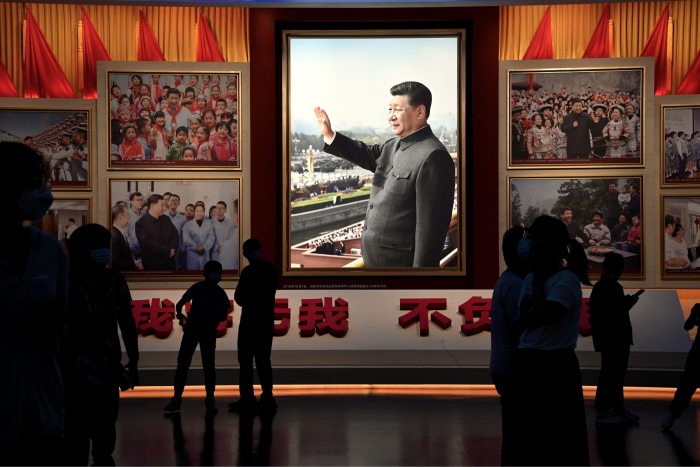
The challenges now facing those watching China from the outside will be brought into sharp relief next month during the 20th National Congress of the Chinese Communist party. While it is widely expected that the congress will rubber stamp a third term for Xi, much of the rest is guesswork.
“What people in DC really want to know is who is going to move up and who is going to move down, especially who is going to be the next premier who will make economic policy, but frankly we are reading the tea leaves,” says Wang Yuhua, a professor of government at Harvard University.
“We don’t really know what’s going on inside Zhongnanhai [the Chinese leadership compound in Beijing]. We can find some patterns from the past, but we all know that Xi Jinping is very different.”
Restricted access
The web of connections that was built up over the past five decades between the US and China spans both the professional and the personal. Exchanges for study or foreign postings in China sometimes resulted in marriages and exposed some foreigners to life in China at a very young age.
Rosie Levine grew up in Beijing between the ages of four and nine in the late 1990s because her mother worked in China at the time. She returned to the country as a student in 2012, and then worked in Beijing from 2014 to 2018 — a period when many western foreigners with a long history in China soured on the country as Xi tightened the political screws and the country grew more nationalistic. “I had the early experience in China and then deepened that when I was in college. I was able to see a lot and travel a lot,” Levine says.
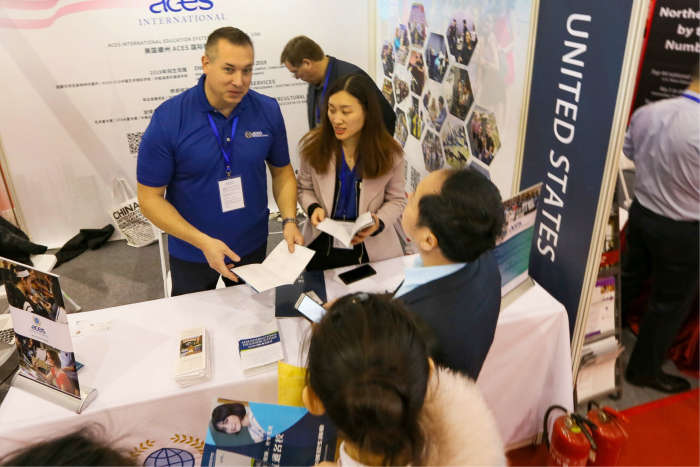
But China’s turn to a more authoritarian, assertive attitude is eroding the emotional bonds for many westerners. Levine, who now works at the United States Institute of Peace, a think-tank, says many among the youngest generation of China experts are now reluctant to go altogether.
“By the time when I was leaving in 2018, it was really a very different China that treated itself differently, treated America differently,” she says. “Many friends and people I knew in China have left in the past few years and I don’t necessarily see a lot of those people returning. I even question myself and my generation’s assumptions about the future: whether the careers we hoped would be straddling the two countries may not be as rewarding as we thought. Quite a few people are considering leaving the field.”
There has been a similarly drastic reversal in academia. After Beijing normalised relations with most western nations in the 1970s, foreign scholars could visit the country frequently.
It was never easy. After the Communist party’s bloody suppression of the June 1989 Tiananmen protests, exchanges went into deep freeze for a while. Some foreign scholars who touched upon Tiananmen or other topics the party considers taboo were banned from ever visiting China again, such as Andrew Nathan, an expert in Chinese politics at Columbia University and co-editor of The Tiananmen Papers, a book based on a collection of secret documents about the massacre.
However, when the reform and opening policy picked up steam in the 1990s, researchers from abroad were able to do a wide range of fieldwork including opinion polls and focus groups in different regions of China and access archives and other sources for their work.
But gradually, the Communist party started limiting their access. First it prohibited foreign entities from conducting opinion polls in the country, then it closed historic archives. More recently, it has also started putting pressure on Chinese scholars to refrain from engaging with foreign partners.
“My friends and colleagues in China are discouraged by their deans to collaborate with US scholars, and they are discouraged from publishing in English,” says Wang, pointing to a speech in which Xi admonished scientists at the elite Tsinghua University in Beijing a few years ago that China’s own scholars should publish in China. “So there’s certainly a whole host of policies to discourage them to collaborate with us.”
Those limits come on top of a harsher political climate overall. Lü Xiaobo, an associate professor at the University of Texas at Austin, says that studying topics such as government behaviour, economic policy or the courts has become more difficult, especially when it might involve exposing government wrongdoing or individual politicians. “Increasingly in the last few years, the space has shrunk, meaning that more and more topics seem to be sensitive.”
Lü says promotion patterns of local politicians and corruption were among the topics that used to be widely studied even in China. However, Chinese scholars are now under pressure not to touch them. “The definition of sensitivity is changing all the time — it’s moving goalposts,” he says.
Such uncertainty over where Beijing’s red lines are is leading younger scholars to self-censor. Professors at universities in the US and Europe say graduate students working on Chinese politics and economics tend to pick dissertation topics they considered “safe” to ensure they can complete the necessary research in China and get their degree.
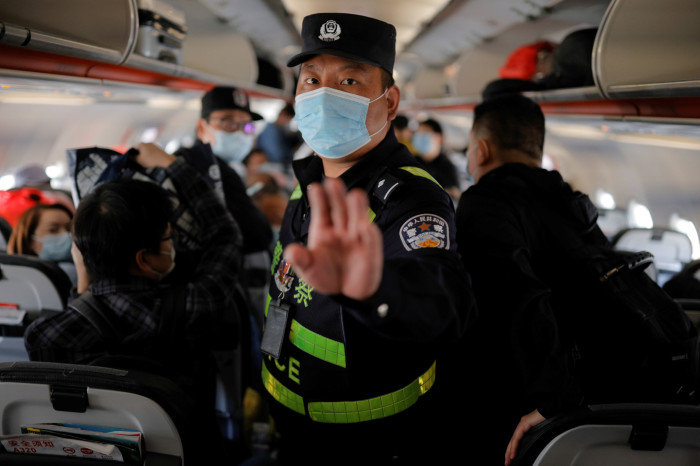
The tougher political environment and the travel restrictions are undermining some of the west’s strongest China expertise. “Some senior scholars who started studying China many years ago, some of the people they got to know and interviewed early on later became high-ranking politicians, opening doors and providing insights,” Lü says. But, he adds, the understanding gained through those connections is getting rare now.
‘Engagement is now a dirty word’
The movement has not all been in one direction. Although political restrictions have proliferated, technology has offered China scholars new opportunities to analyse the country from afar. As conducting opinion polls on the ground has become much more difficult, many of them have started using innovative techniques for online surveys.
The US-China Perception Monitor, an online publication run by the non-profit Carter Center, last year started conducting an online survey on Chinese attitudes on the US and on how Chinese believe the outside world sees their country, using a novel method for randomly picking respondents from the web.
Some China scholars use data extracted from Chinese web pages with the help of purpose-built algorithms.
Other relatively new technology tools such as satellite imagery and ship and aircraft tracking apps have been put to use to research topics such as China’s mass internment of its Uyghur population and the Chinese military.
Using satellite pictures, experts at the Middlebury Institute of International Studies in Monterey and at the China Aerospace Studies Institute at Air University in Alabama discovered missile silos in western China that helped point to a significant expansion in the country’s nuclear arsenal.
Similarly, a team of young scholars at the US Naval War College have used satellite footage, ship tracking software and Chinese military media reports to develop in-depth expertise on topics including the People’s Liberation Army’s strategic lift capabilities and China’s maritime militia, a force made up mostly of commercial fishing vessels which operates alongside law enforcement and the navy.
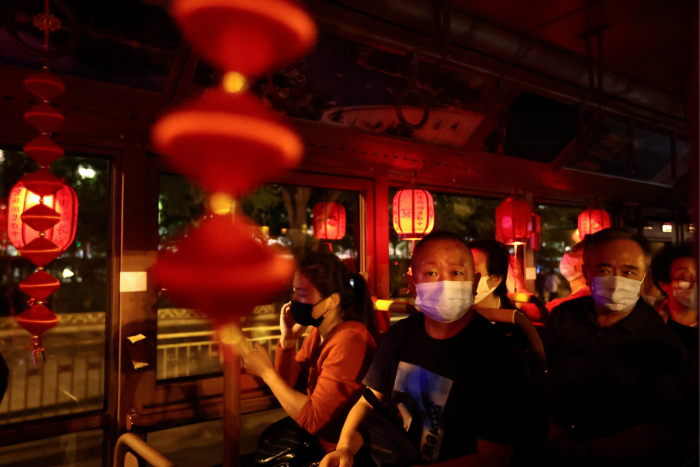
Some young US scholars have also developed expertise on Chinese technology policy and weapons. Elsa Kania, an adjunct senior fellow at the Washington think-tank Center for a New American Security, for example, has produced groundbreaking research on the People’s Liberation Army’s use of emerging technologies and innovation.
Meanwhile, the era of engagement has produced a unique reserve of China knowledge: Chinese scholars in the US. According to the National Science Foundation, 90 per cent of Chinese students who get a PhD in the US stay on.
But amid Washington’s restrictions on visas for Chinese students and accusations against academics of Chinese descent of being spies, that reserve is set to dwindle.
Indeed, some China experts complain that the problems facing the field are not just limited to the clampdown in Beijing, but also a narrowing of the political debate in the US.
Several China scholars say that recent administrations, Congress and big think-tanks are much less interested these days in more nuanced views that do not fit the narrative that Washington and Beijing are adversaries.
One respondent to a NCUSCR survey published last year described research that is not hostile towards the other country as having “less reliable influence on policy and political debates” in both the US and China, according to Berris.
“This is what psychology calls confirmation bias — you look for the answers you want to believe,” Lü says. “In Nixon’s time, they wanted to use China as a piece to counter the Soviet Union, so that changed the mindset in DC about China, and that’s why you see them seek advice from certain senior China scholars at the time. But in the current political environment, it is really hard for scholars holding neutral views to exert influence because it seems regardless if it’s Republicans or Democrats, they are looking for hawks.”
David McCourt, a sociologist at the University of California Davis who researches the community of “Chinawatchers” in the US, argues that the more hardline view about China also determines how younger scholars focus their research.
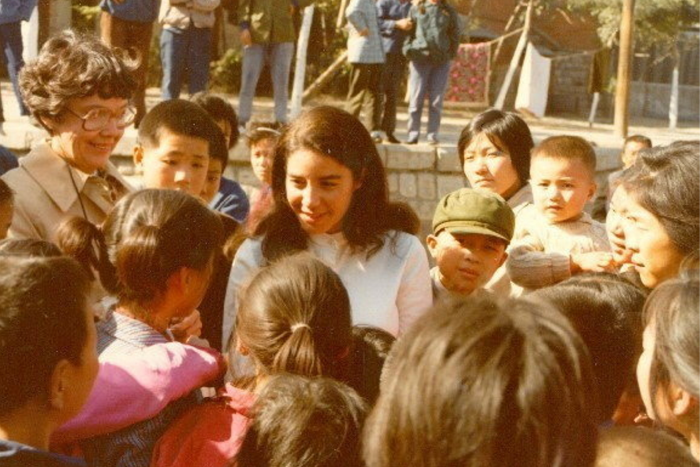
“If you’re wanting to position yourself as a future US policymaker, the horse has left the stable, engagement is now a dirty word, and so you’re either on board with strategic competition or you might miss out,” he says. He adds that when he initially intended to describe one group of experts still more in favour of continuing exchanges with China as “engagers”, some of the people were wary to even be identified with that term. “People don’t want to bear that label — they said you can call us the ‘responsible managers’ or the ‘responsible co-existers’, but just don’t call us engagers,” McCourt says.
That is not just an issue in the US. Fierce debates are erupting in Europe as well over how much, in what way and at what price academia should continue engaging with China. A group of German sinologists have been debating in duelling newspaper columns whether understanding China fully is possible without field research and if it is worth making “tactical compromises” in research design to avoid being cut off from access to the country.
That political climate is weighing on interest in China among younger experts and the public at large. The multiyear growth in student and scholarly exchanges between China and the US has reversed sharply in recent years. The Modern Language Association, a body of language teaching institutions, found that enrolment in Chinese classes in US colleges and universities dropped 13 per cent between 2013 and 2016, and IIE data also show that the numbers of US students going to China plummeted 78.7 per cent to just 2,481 in 2019-20 — the last academic year that started before the onset of the pandemic and the most recent data available.
In the other direction, a decades-long increase in the flow of Chinese students to the US has slowed to a trickle since 2018, with an only 0.8 per cent increase in 2019-20, the last pre-Covid year. In 2020-21, the first full Covid year and newest data available, the number of Chinese students in the US dropped almost 15 per cent.
Such rapid changes force the question of how the west can preserve at least some of the China expertise it has built in the past half century and study China in the future. For Berris, this is a new mission. Having in the past briefed officials at the US military’s Indo-Pacific Command, her team has for the first time approached other parts of the security services.
“They are open to learning more about China,” she says, “and why China may be acting the way it is.”
Comments